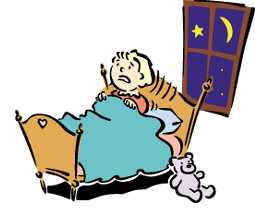 Yes, it’s true. Those of you who are familiar with SchoolPulse know that we are trying to simplify life for busy families. Our focus is on parents – including the parents who volunteer their time generously to lead extracurricular activities for their children – and we are focused on bringing some sanity to their busy schedules.
Yes, it’s true. Those of you who are familiar with SchoolPulse know that we are trying to simplify life for busy families. Our focus is on parents – including the parents who volunteer their time generously to lead extracurricular activities for their children – and we are focused on bringing some sanity to their busy schedules.
Over the past few days, I have developed a new sense of awareness of the unintended (and underappreciated) consequences on children. Consider these experts:
- “According to the most recent data, the lifetime prevalence for anxiety disorders as a whole in adults is about 25%; the frequency in children is unknown, but felt to be significantly underreported and under-diagnosed… What does seem to be developing in the medical literature is the consensus that many “adult” psychiatric disorders have their first (although perhaps subtle or ignored) manifestations in childhood.” Source
- “The combined prevalence of… anxiety disorders is higher than that of virtually all other mental disorders of childhood and adolescence (Costello et al., 1996). The 1-year prevalence in children ages 9 to 17 is 13 percent.” Source
- “If your child has too little free time, help him or her change his or her schedule to make time for relaxation and play… Parents may want to examine their own schedules. Often a parent’s hectic schedule will cause a child to be stressed or nervous about the things he or she is doing.” Source
The evidence among families I know is decidedly less scientific, but no less alarming. Over the past few days, my wife brought up the topic of childhood anxiety with four friends, and three of them (that’s 75%) revealed that one or more of their children had seen counselors for help with anxiety issues. It’s no surprise, really.
- Most public schools give kids 20 minutes or less to eat lunch.
- Many kids participate in co- and extracurricular activities before and after school.
- We are all too familiar with the challenge of assembling the whole family at meal times.
- Weekends are a blur of sports, birthday parties, and play dates.
- The quantity of homework heaped on students of all ages seems to increase every year
In short, our kids are constantly on the go and have very little downtime. What they need is the opportunity to unwind, to relax, to hang around the house, to experience less structure in their lives. Family time is highly valued because it is so scarce. It’s a sad commentary on the age in which we live.
Until recently, I hadn’t really focused on the opportunity for SchoolPulse to improve the quality of our children’s lives, but you can be sure I will in the future.
** UPDATE ** The 10/31 Boston Globe carried an AP story saying that as many as 20% of American children and teens may be affected by anxiety disorders.



 Posted by John Boynton
Posted by John Boynton 
